
Cong Bolin, an associate researcher at the First Institute of Oceanography, the Ministry of Natural Resources of China, speaks during an interview with Xinhua at Ao Phang-Nga National Park in Phang Nga province, Thailand, Nov. 20, 2024. (Xinhua/Sun Weitong)
Phang Nga, Thailand, Nov. 21 (Xinhua) -- A series of activities on mangrove ecological protection between China and Thailand were held in Thailand's southern Phang Nga province, gathering more than 60 representatives from the natural resources and marine departments of the two countries.
The China-Thailand Mangrove Collaborative Protection Demonstration Area was unveiled in Thailand's Ao Phang-Nga National Park during the two-day event which started on Wednesday. With an area of 311 hectares, the demonstration area is located along the coast of Phang Nga Bay.
The Chinese and Thai marine departments will carry out mangrove vulnerability assessment, ecological restoration analysis, nature education, and mangrove planting as well as the establishment of a cooperation mechanism, aiming to have an in-depth collaboration and exchange.
Growing in the intertidal zones of tropical and subtropical coasts, mangroves play an important role in purifying seawater, preventing wind and waves, sequestering and storing carbon, and maintaining biodiversity.
Ao Phang-Nga National Park has one of the largest and best-preserved mangrove areas in Thailand. However, mangrove protection has been threatened by some challenges in recent years.
Onnitcha, director of the Mangrove Resources Research and Development Center 3 under Thailand's Department of Marine and Coastal Resources, said that Thailand can learn from China's rich experience in mangrove protection and restoration technology.
She added that the local government and community expressed their sincere gratitude to China for the support and looked forward to cooperation in more areas in the future.
Cong Bolin, an associate researcher at the First Institute of Oceanography, the Ministry of Natural Resources of China, said that as one of the few countries that has achieved an increase in mangrove areas in recent years, China has accumulated rich experience in restoration and technical standards.
He believed that China and Thailand will strengthen cooperation at multiple levels such as policy formulation, technology research and development, and talent training, so as to jointly promote the protection and restoration of mangroves.
The event was supported by the China-Thailand Joint Laboratory for Climate and Marine Ecosystems, established by the Ministry of Natural Resources of China and the Ministry of Natural Resources and Environment of Thailand.
The event also includes academic exchanges, nature education, mangrove planting and mangrove science book donation, with the purpose of further enhancing the Thai people's understanding of mangrove protection and encouraging more to participate in mangrove conservation. ■
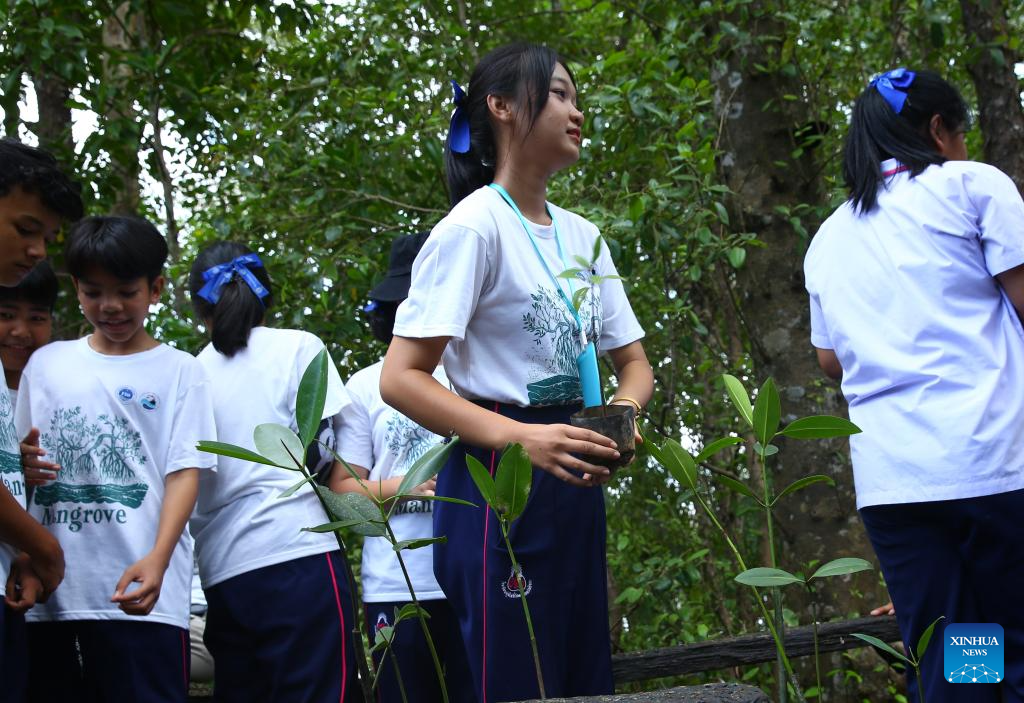
Students plant mangroves during activities on mangrove ecological protection between China and Thailand at Ao Phang-Nga National Park in Phang Nga province, Thailand, Nov. 20, 2024. (Xinhua/Sun Weitong)
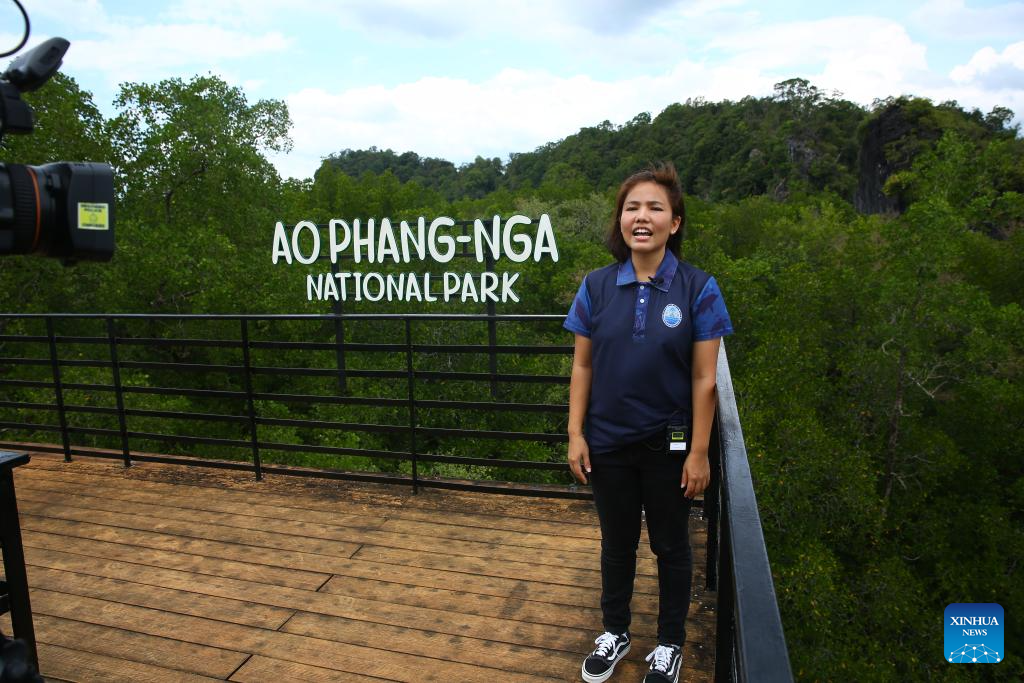
Onnitcha, director of the Mangrove Resources Research and Development Center 3 under Thailand's Department of Marine and Coastal Resources, speaks in an interview with Xinhua at the Ao Phang-Nga National Park in Phang Nga province, Thailand, Nov. 20, 2024. (Xinhua/Sun Weitong)
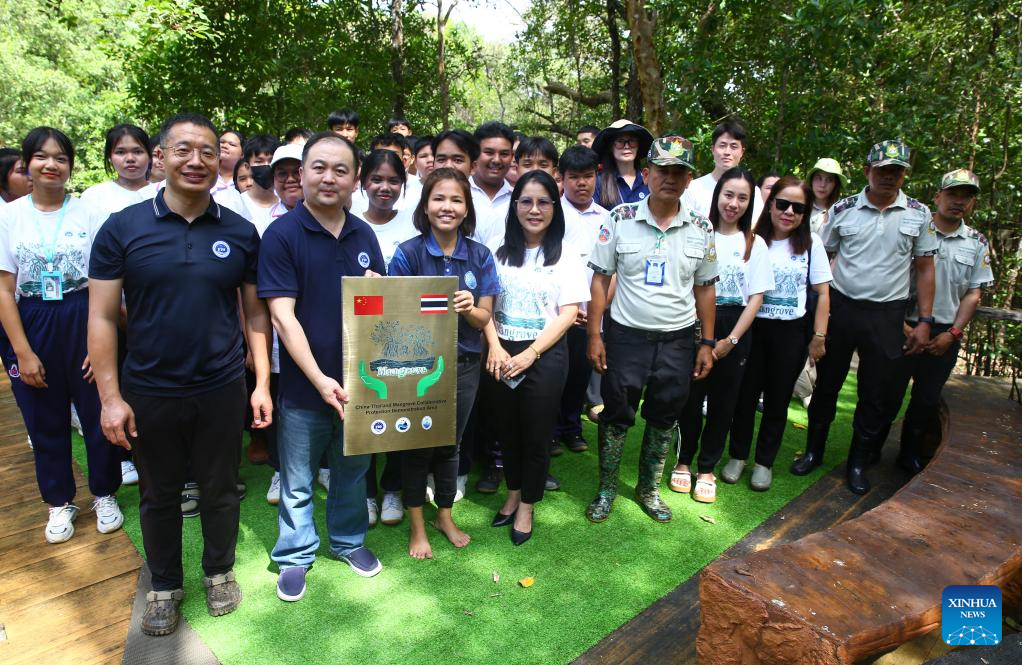
Chinese and Thai representatives unveil the China-Thailand Mangrove Collaborative Protection Demonstration Area at the Ao Phang-Nga National Park in Phang Nga province, Thailand, Nov. 20, 2024. (Xinhua/Sun Weitong)
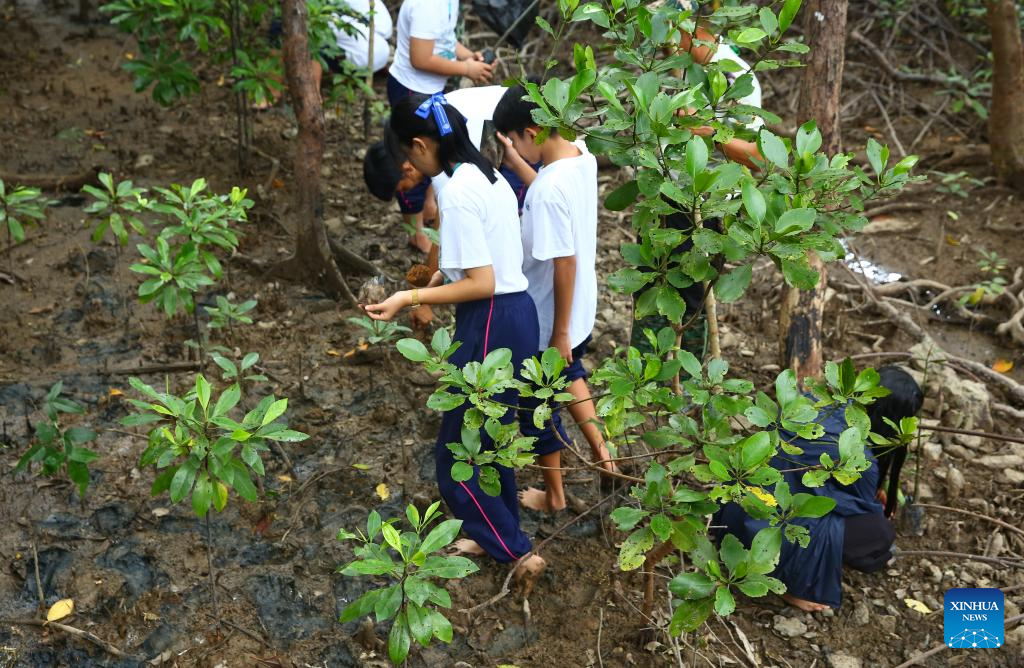
Students learn to plant mangroves at the Ao Phang-Nga National Park in Phang Nga province, Thailand, Nov. 20, 2024. (Xinhua/Sun Weitong)
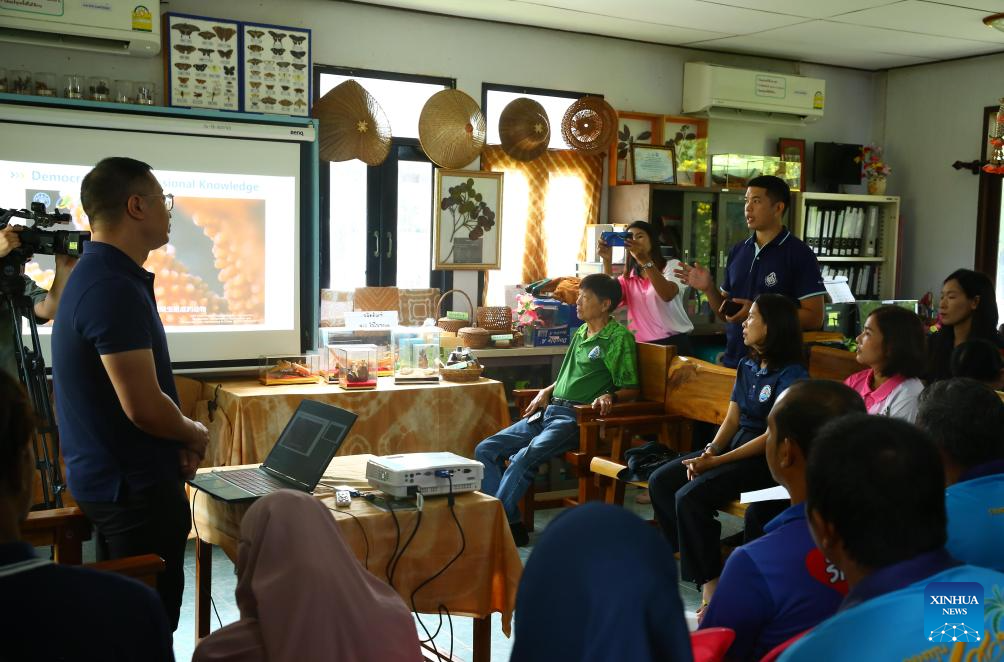
Chinese and Thai scholars take part in an academic discussion in Phang Nga province, Thailand, Nov. 21, 2024. (Xinhua/Sun Weitong)
